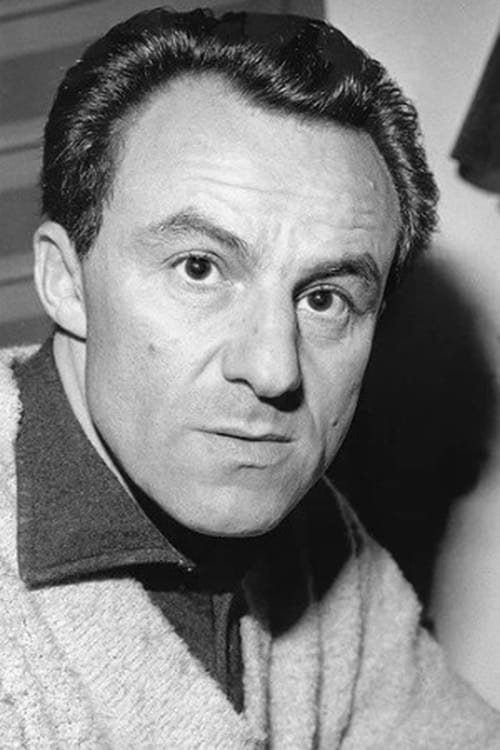Andrzej Munk
出生 : 1921-10-16, Kraków, małopolskie, Polska
死亡 : 1961-09-20
略歴
From Wikipedia
Andrzej Munk (16 October 1921 – 20 September 1961) was a Polish film director, screen writer and documentalist. He was one of the most influential artists of the post-Stalinist period in the People's Republic of Poland. His feature films Man on the Tracks (Człowiek na torze, 1956), Eroica (Heroism, 1958), Bad Luck (Zezowate szczęście, 1960), and Passenger (Pasażerka 1963), are considered classics of the Polish Film School developed in mid-1950s. He died as a result of a car crash in Kompina in a head-on collision with a truck.
He was 40.
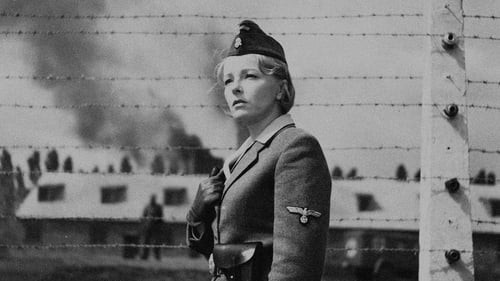
Screenplay
A German woman on a ship returning to Europe notices a face of another woman which brings recollections from the past. She tells her husband that she had been an overseer in Auschwitz during the war, but she has actually saved a woman's life.

Director
A German woman on a ship returning to Europe notices a face of another woman which brings recollections from the past. She tells her husband that she had been an overseer in Auschwitz during the war, but she has actually saved a woman's life.

Director
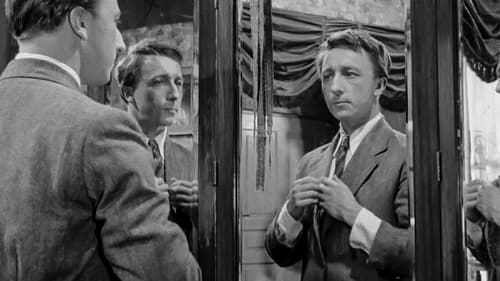
Director
To convince the prison warden against releasing him, a middle-aged Polish man recounts his life, one he considers to have been characterized by exceptionally bad luck.

Director

Writer
Little heroine, a music school student, wanders through the backstreets of Warsaw's Old Town and discovers a world to which others have no access. It is a world of extraordinariness and beauty of sounds. And these are sounds that are the most important thing for the girl – the hubbub of children, the sounds of the street, the puffing of a tractor, the tuning of an organ, the sweeping of a broom and the sound of jets flying overhead.

Director
Little heroine, a music school student, wanders through the backstreets of Warsaw's Old Town and discovers a world to which others have no access. It is a world of extraordinariness and beauty of sounds. And these are sounds that are the most important thing for the girl – the hubbub of children, the sounds of the street, the puffing of a tractor, the tuning of an organ, the sweeping of a broom and the sound of jets flying overhead.

Director
Originally, Munk intended Eroica to be a triptych with Con bravura being the first part, but he ultimately gave up on this film, deeming it weaker artistically than the two counterparts. Con bravura is about conspiracy conflating the paths of a rather unconventional nun and an intrigued young man – each of them bears secrets and the encounter could incite a flaming romance, though one suffocated by war.Munk set the film in the mountain capital of Zakopane and its vicinity, allowing breathtaking views from a cable car and using his experiences of the Nazi occupation in the area to add gritty reality. The director plays a cameo as a priest with several of his industry friends also making appearances.
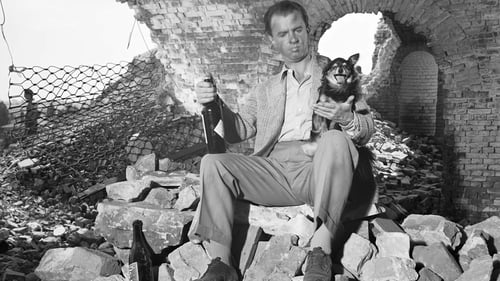
Director
Tells two tales set during WWII: A seemingly feckless and selfish finally takes up arms in the national struggle against the Nazis. Set in a POW camp, Polish inmates cling to their hopes for an eventual escape, encouraged by the legendary escape of one of their own.
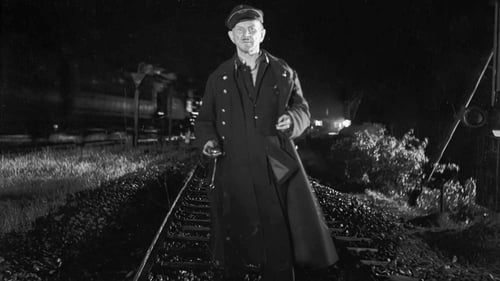
Writer
In 1950, at night, a passenger train kills a man on the tracks. He is Orzechowski, an engineer since 1914. An inquiry immediately follows. Testimony takes the form of flashbacks. Tuszka, the station master, believes Orzechowski was a saboteur; at least one on the inquiry panel agrees. Zapora, the young engineer on the train that hit Orzechowski, gives more complicated testimony about the dead man - stiff-necked, proud, imperious, critical of Zapora and other younger workers. The signalman at the crossing where Orzechowski died also testifies. Can the panel arrive at the truth in a world where workers unite, inferior coal is a badge of honor, and the old order is suspect?

Director
In 1950, at night, a passenger train kills a man on the tracks. He is Orzechowski, an engineer since 1914. An inquiry immediately follows. Testimony takes the form of flashbacks. Tuszka, the station master, believes Orzechowski was a saboteur; at least one on the inquiry panel agrees. Zapora, the young engineer on the train that hit Orzechowski, gives more complicated testimony about the dead man - stiff-necked, proud, imperious, critical of Zapora and other younger workers. The signalman at the crossing where Orzechowski died also testifies. Can the panel arrive at the truth in a world where workers unite, inferior coal is a badge of honor, and the old order is suspect?
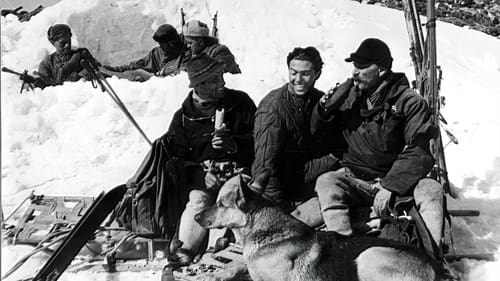
Writer
The final film produced by Warsaw’s Documentary Film Studio is an epic re-enactment of a treacherous mission by the Voluntary Tatra Mountain Rescue Service to aid colleagues stranded behind enemy lines at the close of World War II (several real participants feature in the film). Based on a short story about the rescue by Adam Liberak, Munk’s final “documentary” is also arguably his first major exercise in the craft of narrative filmmaking.

Director
The final film produced by Warsaw’s Documentary Film Studio is an epic re-enactment of a treacherous mission by the Voluntary Tatra Mountain Rescue Service to aid colleagues stranded behind enemy lines at the close of World War II (several real participants feature in the film). Based on a short story about the rescue by Adam Liberak, Munk’s final “documentary” is also arguably his first major exercise in the craft of narrative filmmaking.

Director
Short propaganda film. Warsaw's post-war reconstruction as seen through the eyes of the passengers of a red bus.

Director
A fictionalized documentary in two parts. A mining company's management attempts to fulfill a production quota by mining from an old, unused shaft.

Director
A documentary about the hard work of railwaymen transporting coke from Tarnowskie Góry to Szczecin Iron works. They’re doing their best to arrive on time.

Writer
A film meant to show what people were told to believe about the wonderful lives that Polish peasants led in post-war Poland.

Director
A recording of the performance of the symphonic poem entitled Fairy Tale by Stanislaw Moniuszko at the ‘Ursus’ Factory in Warsaw. It took place in 1952 and was performed by the Warsaw Philharmonic Orchestra under the baton of Witold Rowecki.

Director
A film meant to show what people were told to believe about the wonderful lives that Polish peasants led in post-war Poland.

Cinematography
Modern work tools are created thanks to the development of science, as a result of the transfer of knowledge between generations. A review of the tradition of Polish science from the times of Nicolaus Copernicus to the establishment of the Polish Academy of Sciences. [35mm online]

Director
Modern work tools are created thanks to the development of science, as a result of the transfer of knowledge between generations. A review of the tradition of Polish science from the times of Nicolaus Copernicus to the establishment of the Polish Academy of Sciences. [35mm online]

Director
This documentary describes the process of building and the first days of the combine and the city of Nowa Huta. Andrzej Munk realizes the postulates of socialist realism decreed in Polish cinematography in 1949.

Director
In October 1949, when socialist realism was imposed on Polish artists, a presentation of the achievements of art schools took place in Poznań. The report of the event called ‘shows’ was made by students of the Film School in Łódź.

Self (archive footage)
Andrzej Munk was one of the leading directors in Polish cinema. Friends and collaborators share their memories about this stunning artist and his premature tragic death.
